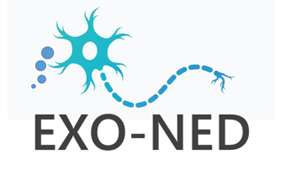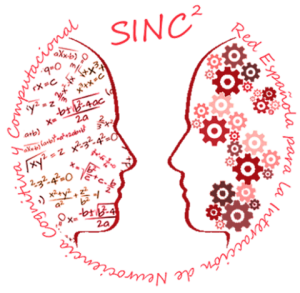Organizers
Estibaliz Maudes. ECTRIMS Postdoctoral fellow, Translational Neuroinflammation Group. Institut for Neuropathology, Neurology Clinic, Fraunhofer Institute, Göttingen Medical University, Göttingen, Germany.
Josep Dalmau. Leader of the Pathogenesis of Autoimmune Neuronal Disorders Group. Fundació Clínic per la Recerca Biomèdica – Institut d’Investigacions Biomèdiques August Pi i Sunyer (FCRB-IDIBAPS), CaixaResearch Institute, University of Barcelona, Spain. Adjunct Professor of Neurology at the University of Pennsylvania, USA.
Speakers
From patients’ symptoms to the discovery of antibody-mediated synaptic disorders
Josep Dalmau. Leader of the Pathogenesis of Autoimmune Neuronal Disorders Group. Fundació Clínic per la Recerca Biomèdica – Institut d’Investigacions Biomèdiques August Pi i Sunyer (FCRB-IDIBAPS), CaixaResearch Institute, University of Barcelona, Spain. Adjunct Professor of Neurology at the University of Pennsylvania, USA.
Animal models of autoimmune encephalitis and what we can learn for clinical management
Estibaliz Maudes. ECTRIMS Postdoctoral fellow, Translational Neuroinflammation Group. Institut for Neuropathology, Neurology Clinic, Fraunhofer Institute, Göttingen Medical University, Göttingen, Germany.
Cross-talk between antibodies and innate immunity in encephalitis
Marianna Spatola. Junior leader by La Caixa Foundation. Fundació Clínic per la Recerca Biomèdica – Institut d’Investigacions Biomèdiques August Pi i Sunyer (FCRB-IDIBAPS), CaixaResearch Institute, University of Barcelona, Spain.
Antibody-mediated changes in neuronal circuits and memory
Albert Compte. Leader of the Theoretical Neurobiology of Cortical Circuits Group. Fundació Clínic per la Recerca Biomèdica – Institut d’Investigacions Biomèdiques August Pi i Sunyer (FCRB-IDIBAPS), Spain.
Details
This symposium will explore the expanding role of neural cell-surface antibodies in neurological diseases. These antibodies, targeting ion channels, receptors, and synaptic proteins, are linked to a broad range of neurological symptoms. Notably, N-methyl-D-aspartate receptor (NMDAR) antibodies are commonly found in patients with psychiatric symptoms, memory deficits, and other neurological alterations. Advances in neuroimmunology have helped elucidate antibody-mediated encephalitis mechanisms using cellular and animal models. Imaging and electrophysiological studies have detailed how autoantibodies interact with cell-surface proteins, disrupting their function. Meanwhile, passive transfer models have demonstrated the pathogenicity of these antibodies in vivo, and emerging active immunization models provide deeper insights into disease immunobiology and potential therapies.
Beyond direct receptor or synaptic protein effects, neural cell-surface antibodies can also trigger innate immune responses, including microglial activation, which may contribute to antigen loss and neuronal dysfunction. However, the mechanisms driving the diversity of clinical phenotypes remain poorly understood, emphasizing the need for systematic profiling of patients’ antibodies. Additionally, these autoantibodies serve as powerful tools for studying cognitive processes, with recent findings indicating their impact on neuronal circuits involved in working memory. This symposium will present a comprehensive review of antibody-mediated mechanisms in immune-mediated neurological disorders, offering valuable insights into both disease pathogenesis and potential therapeutic advancements.
 Palacio de Congresos de Canarias / Auditorio Alfredo Kraus
Palacio de Congresos de Canarias / Auditorio Alfredo Kraus Palacio de Congresos de Canarias / Auditorio Alfredo Kraus
Palacio de Congresos de Canarias / Auditorio Alfredo Kraus








